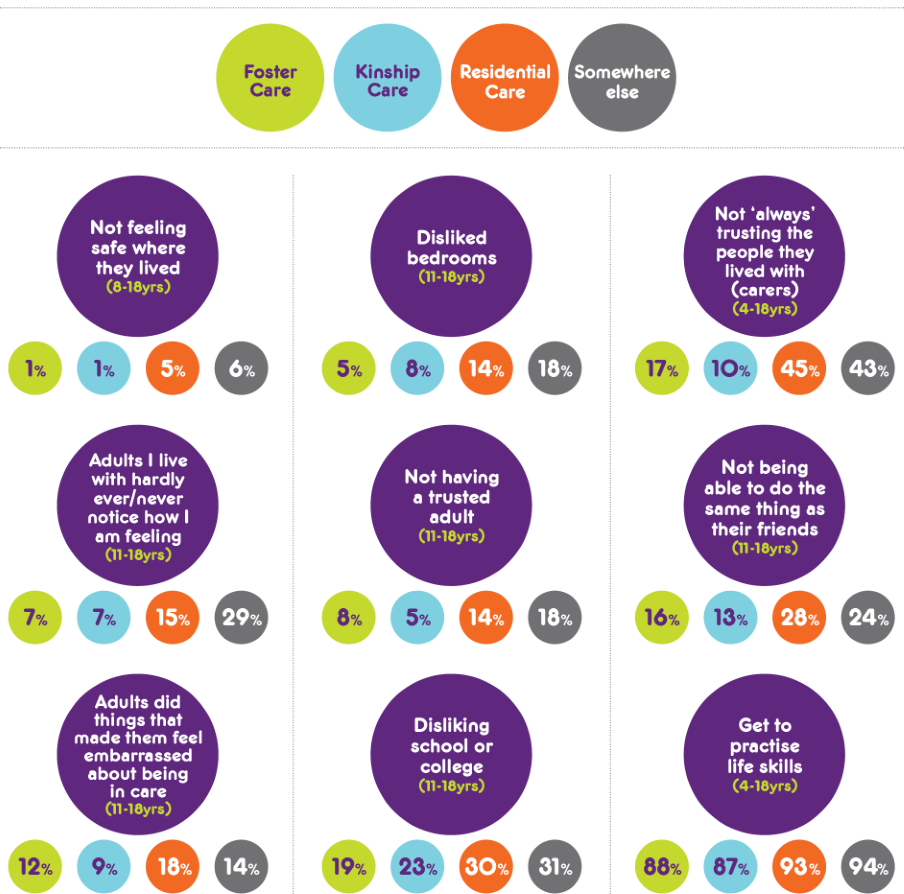17 May 23
Coram Voice is committed to getting young voices heard in the decisions that matter to them, as part of that, we last week sent in our response to Stable Homes, Built on Love and the Children’s social care national framework and dashboard.
In our response we set out care experienced young people’s views on the strategy and what we think needs to happen to embed youth voice in the system.
- Download our response to the Stable homes, built on love strategy consultation
- Download our response to the Children’s social care national framework and dashboard consultation
In addition to responding to the online consultation questions we produced two reports pulling together our feedback.
Feedback from ANV Ambassadors to the ambitions and missions
A National Voice (ANV) is the ‘National Children in Care Council’ for children in care and care leavers aged 11-26, every year a group of care experienced young people aged 16-25 are recruited from across the country to be our ANV Ambassadors and guide the work of the ANV.
Our Ambassadors have participated in a range of activities to inform the Government strategy, including sessions with representatives from the Department for Education working on the strategy.
|
There’s so many things that need to change around the foster care system. It is so important that the government, the people who have the power to make a difference, take some time to listen to children and young people who have experienced being in the care system. To them, this is just a job, but this is our lives. (Chloe, ANV Ambassador and Chair of ANV) |
This paper summarises what two groups of ANV Ambassadors spoke about on two separate occasions, February and April 2023, about Stable Homes, Built on Love.
(A summary of these views were included in Coram Voice response to the consultation)
How we believe the Department can work to Embed Youth Voice in the Children’s Social Care System
There is a commitment to the principle of youth voice throughout the Stable Homes, Built with Love strategy and National Framework, but not enough is said about how to make this promise a reality.
This paper highlights what our extensive experience of engaging care experienced children and young people has taught us about what needs to be in place for decision makers in children’s social care (and government) to hear and act on the voices of children and young people and what that may mean for an outcomes framework.
We need to move beyond principles to think about how youth voice can practically be embedded at all levels of decision making – individual (child’s own care), organisational (local authority and partners) and system (National Government).
In this paper we set out specific actions that should be taken to realise youth voice, in particular we make three key recommendations to inform the government’s implementation strategy and national framework:
1. Create a new mission to embed youth voice by putting in place the structures and systems to make the right to be heard a reality for all children and young people.
2. Focus more on making life better for children and young people by making well-being, as defined by children and young people themselves, a key pillar for children’s social care.
3. Support children and young people to be heard and safeguard their rights by giving them the information about their rights and providing opt out independent advocacy for all children and young people throughout and beyond the care system (including in child protection, kinship care, care leavers etc.)
- Download our Embedding youth voice in Children’s Social Care report – specific actions that should be taken to realise youth voice

